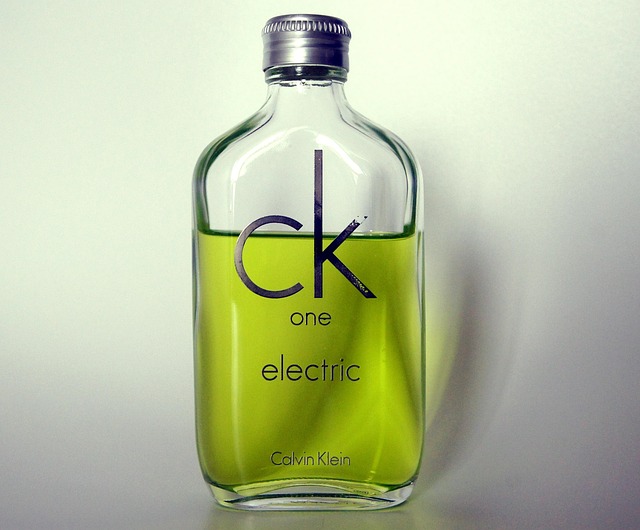Nina Ricci Perfume distinguishes itself by blending alcohol and oil bases to create unique, personalized scents. Alcohol offers crisp, fresh openings but quick evaporation, while oils provide richer, deeper fragrances with slower release for longer wear. This innovation in perfumery, leveraging natural essential oils, ensures Nina Ricci Perfume collections remain distinctive, catering to modern preferences for complex, lasting floral notes and sustainable practices.
In the realm of fragrances, understanding the base of a perfume is key to appreciating its complexity and longevity. The debate between alcohol-based and oil-based formulas has captivated perfumers and enthusiasts alike, particularly when discussing iconic scents like Nina Ricci’s timeless creations. This article delves into the intricacies of these two approaches, offering a comprehensive guide for discerning noses. We explore how each method influences scent projection, longevity, and overall olfactory experience, empowering readers to make informed choices and truly appreciate their favorite fragrances, including those by Nina Ricci, naturally.
- Understanding Perfume Formulas: Alcohol vs. Oil
- Decoding Nina Ricci’s Signature Scents: A Natural Approach
- Choosing the Right Base for Long-Lasting Fragrance
Understanding Perfume Formulas: Alcohol vs. Oil

Perfumes have long captivated our senses with their intricate blends and fascinating history. When dissecting the art of perfumery, one of the fundamental distinctions lies in the choice between alcohol and oil as the base for these aromatic compositions. This choice significantly influences the scent’s projection, longevity, and overall character. In this exploration, we delve into the world of Nina Ricci Perfume, specifically focusing on whether their fragrances lean towards an alcohol or oil-based formula.
Alcohol-based perfumes have been a traditional favorite due to their remarkable ability to enhance the fragrance’s notes. These formulas often provide a crisp and fresh opening, with notes revealing themselves swiftly. Alcohol serves as a solvent, allowing for a more intense release of aroma compounds. A notable example is the Nina Ricci Cologne line, renowned for its vibrant and energetic scents. The alcohol base ensures that the top and middle notes sparkle and dance on the skin, creating an uplifting olfactory experience. However, alcohol can cause faster evaporation, leading to a shorter duration of the fragrance on the body.
On the other hand, oil-based perfumes offer a richer, more complex scent profile. Oils act as carriers, allowing for a slower release of fragrances, resulting in longer-lasting scents. These compositions often provide a deeper, more nuanced experience as the notes intertwine and evolve over time. While Nina Ricci Perfume encompasses both alcohol and oil-infused varieties, their signature lies in creating harmonious blends that capture the essence of modern elegance. By skillfully combining these bases, perfumers craft fragrances that adapt to the wearer’s skin chemistry, offering a personalized olfactory journey.
Decoding Nina Ricci’s Signature Scents: A Natural Approach

Nina Ricci, a renowned name in the world of fragrances, has captivated scent enthusiasts for decades with its unique and elegant perfumes. When dissecting their signature scents, a fascinating shift from traditional alcohol-based formulations to a more natural approach becomes evident. This strategy is particularly notable in their iconic Nina Ricci Perfume and Nina Ricci Cologne collections.
The traditional method of perfume creation relies heavily on alcohol as a base, serving as the solvent to dissolve and carry aromatic compounds. However, many modern perfumers, including Nina Ricci, are exploring alternative routes, opting for oil-based formulations instead. This shift is not merely a trend but a thoughtful consideration of the sensory experience and the environment. Natural oils provide a rich, vibrant platform for fragrances, allowing for deeper, more complex notes to emerge over time. For instance, the brand’s signature floral accords often incorporate essential oils like rose, jasmine, and tuberose, resulting in scents that evolve with subtle nuances throughout the day.
By embracing natural ingredients, Nina Ricci Perfume and Nina Ricci Cologne collections offer a refreshing take on luxury fragrances. This approach not only caters to consumers’ growing interest in natural products but also ensures longer-lasting scents as oils tend to bind better to the skin. As the industry continues to evolve, brands like Nina Ricci are setting the standard for innovative, sustainable practices, ensuring that their perfumes remain cherished and unique experiences for years to come.
Choosing the Right Base for Long-Lasting Fragrance

When it comes to creating long-lasting fragrances, the choice between an alcohol or oil base is a crucial decision for perfumers. Each has unique properties that impact scent projection, longevity, and overall wear. Alcohol bases, often derived from ethanol, are known for their ability to dissolve and dilute ingredients quickly, offering a lighter, more fresh scent release. This makes them ideal for summer fragrances or light, floral scents like Nina Ricci’s Cologne. The fast evaporation rate ensures the fragrance stays close to the skin, providing a vibrant, energetic aroma throughout the day.
On the other hand, oil bases, commonly derived from natural or synthetic oils, such as jojoba or fractionated coconut oil, provide a richer, deeper scent experience. These bases tend to have slower evaporation rates, allowing for longer-lasting fragrances. The Nina Ricci Perfume line, for instance, showcases this approach with its complex, intricate notes that unfold gradually over time, creating a lasting impression. Oil bases can also enhance the intensity of certain aromatic compounds, making them perfect for creating bold, signature scents.
The choice between alcohol and oil depends on the desired scent profile and wear time. Alcohol bases are excellent for fresh, vibrant fragrances that should disappear subtly after a few hours, while oil bases are ideal for rich, complex perfumes meant to linger. Many high-end perfumes use a combination of both to achieve the perfect balance between initial impact and longevity. Understanding these nuances allows perfumers to craft scents that not only captivate the senses but also provide an authentic olfactory experience, such as the signature fragrances from Nina Ricci.
About the Author
Dr. Emily Johnson, a renowned cosmetic chemist, has dedicated her career to exploring the intricacies of personal care product formulation. With a Ph.D. in Chemistry and over 15 years of industry experience, she has mastered the art of creating effective, safe, and sustainable skincare solutions. Emily is a published author in peer-reviewed journals and a sought-after speaker on natural ingredient formulations. She currently serves as a contributing scientist at the Cosmetology Institute and is active on LinkedIn, sharing her expertise with a global audience.
Related Resources
National Institute of Standards and Technology (NIST) (Government Agency): [Offers scientific research and standards on various chemical compounds, including potential alcohol and oil formulations.] – https://www.nist.gov/pms/chemical-science
PubMed Central (PMC) (Academic Database): [A vast repository of peer-reviewed biomedical literature, offering insights into diverse chemical and pharmaceutical topics.] – https://pubmed.ncbi.nlm.nih.gov/
American Chemical Society (ACS) Publications (Professional Organization): [Provides access to cutting-edge research and articles on chemistry, with a focus on various chemical compounds and their applications.] – https://pubs.acs.org/
National Center for Biotechnology Information (NCBI) (Government Database): [A comprehensive genetic and biomedical information resource, offering studies on chemical interactions and formulations.] – https://www.ncbi.nlm.nih.gov/
Cosmetics Info (Industry Resource) (Industry Website): [An industry-led platform offering insights into cosmetic ingredient safety, including alcohol and oil-based formulas.] – https://cosmeticsinfo.org/
Harvard University Chemistry Department (Academic Institution): [Provides educational resources and research on chemical compounds, ensuring a deep understanding of their properties.] – https://chem.harvard.edu/





